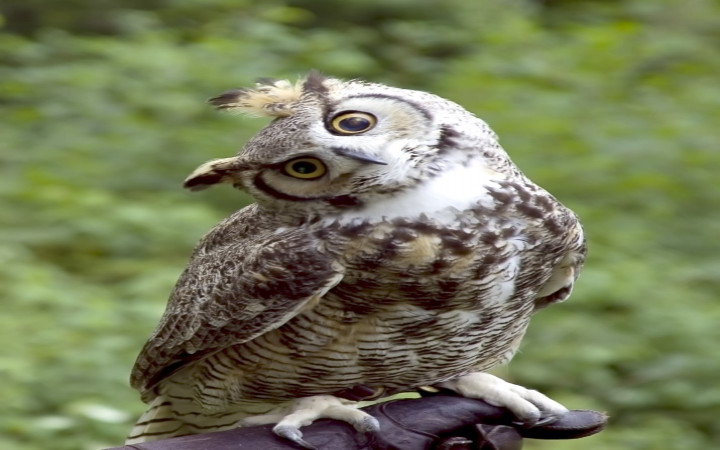Chipmunk: Who's there?
Squirrel: Who!
Chipmunk: Who who?
Squirrel: Hey! Are you an owl?
OK, so that's an old joke the squirrel played on the chipmunk, but we still like it. And it's the perfect introduction to today's Wonder of the Day about owls and the unique sounds they make.
If you've ever heard an owl hoot, it was probably at night. Why? Owls are nocturnal animals. That means they're active at night and sleep during the day. However, not all owls hoot and, of those that do, hoots aren't the only sounds they make.
In addition to hoots, owls may chirp, whistle, scream, screech, , growl, or shriek. Scientists call these different sounds vocalizations. Why do owls have so many different vocalizations? Most owls make these sounds in order to communicate. And there are just as many messages as there are different types of calls!
The exact message conveyed by a particular sound will often vary between different types of owls. Most owl vocalizations are loud and low in pitch, which helps the sounds travel long distances through the night skies.
For example, the easily-recognizable hoot you're familiar with is usually a territorial call. Heard for miles around, hoots declare a claim to a particular territory and serves as a warning to other owls to stay away. The “hoo-hoo-hooooo" sound often associated with owls belongs to the great-horned owl.
In addition to hoots, owls may screech or shriek from time to time. Some owls give out a loud shriek when they feel threatened or are attacking a predator. At other times, loud screeches may be used during mating season to attract a mate. Some people believe these loud screeches sounds just like a human woman screaming.
When an owl feels scared or threatened, it may also emit short, low barking sounds. If you hear an owl barking, it's probably trying to scare off whatever is scaring or threatening it. Other owls growl to deter predators. Of course, those barks might turn to shrieks if the threat persists.
One other common sound heard in the middle of the night is the shriek of baby owls. When owls awaken at night, the parents often head out to hunt for food. The owlets left behind might shriek to communicate the fact that they're hungry. Of course, they might also simply be lonely and want their parents to return.
Either way, their shrieks are sure to carry to their parents' ears, bringing them back to the nest quickly. Owls known to shriek as infants include common barn owls, common scops owls, and common sooty owls.




